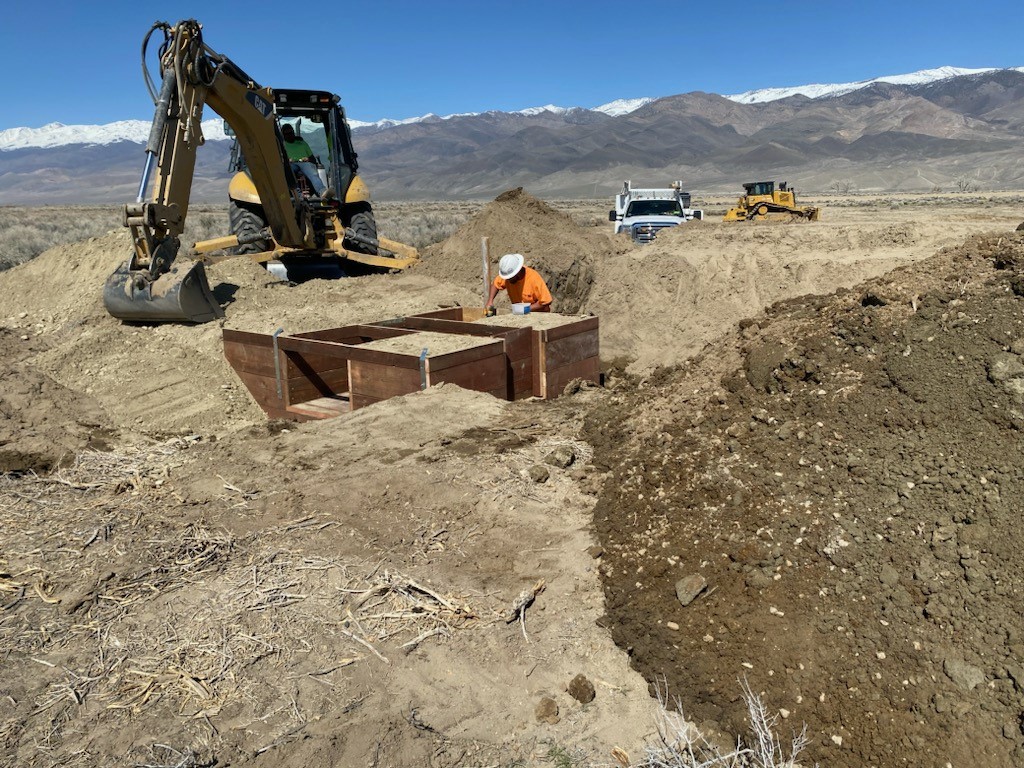The Los Angeles Department of Water and Power (LADWP), has begun preparing early for this year’s runoff based on lessons learned from the last extreme wet year in 2017. The historic snowpack levels in the Eastern Sierra of 296 percent of normal translates into runoff that is 233 percent of normal. That translates into 1 million acre feet, or 326-billion gallons of water that will need to be managed. The runoff season—the period in which temperatures rise and the snow melts– is expected to last through the summer months, requiring significant preparation work and coordination with partner agencies in the Eastern Sierra to implement public safety measures to mitigate the potential for flooding.
“We have had crews and personnel making the necessary preparations since last December and are ready to respond when the snow begins to melt,” said Anselmo Collins, Senior Assistant General Manager of LADWP’s Water System. “A typical runoff season can last anywhere from May to June. However, with our record snowpack this year and the volume of water that translates into once the snow melts, the season may push through to August.”
“We have already begun managing excess flows by spreading water throughout the aqueduct system to replenish local groundwater aquifers, and maximizing flows in the LA Aqueduct by emptying reservoirs to create more storage space for runoff waters,” said Adam Perez, LADWP’s Aqueduct Manager. “This allows us to supply Los Angeles with aqueduct water in place of purchased and pumped water wherever possible.” Currently, approximately 130 billion gallons of water is expected to make its way to Los Angeles this spring and summer via the Los Angeles Aqueduct– potentially enough to meet 80 percent of LA’s annual demand, to serve more than 1 million LA households for a year.
Despite these efforts, a high volume of runoff will still remain in the Eastern Sierra and require management efforts. Additional emergency hires have been put in place to support the increased construction and operational needs. Equipment, such as excavators, backhoes, and in-flow meters, have also been purchased and strategically placed in key locations to expedite response during the runoff season.
Other preparation work includes repairing diversion structures damaged during heavy rainfall earlier this year to ready spreading grounds to receive the runoff; repairing and cleaning ditches that receive the runoff; and shoring up areas of Owens Lake to minimize the expected damage rising water levels may pose to dust mitigation infrastructure.
While the record snowpack means increased water supply to offset purchased water, LADWP officials continue to encourage its customers to continue using their water efficiently. With extreme climate becoming a more regular occurrence, the unpredictability means water conservation will remain a constant, through wet and dry years alike.
PUBLIC SAFETY RESOURCES:
Due to the potential for high water flows during the warmer months, LADWP advises the public to exercise caution and follow posted safety signs when recreating near waterways in the Eastern Sierra this year. Check for updates on road and flood conditions before making travel plans. The following resources are available:
https://ready.mono.ca.gov/
https://pw.lacounty.gov/LACFCD/web/
LADWP will also be providing regular updates on its water spreading and management efforts via www.ladwpeasternsierra.com. To receive LADWP in the Eastern Sierra news and updates directly in your inbox, subscribe at the link.

Los Angeles Department of Water and Power
LADWP provides safe, reliable and high-quality water to the residents, businesses and visitors of the second largest city in America. Through innovation and strategic investments, LADWP is working to ensure that the city we serve remains sustainable and resilient well into the future.
Last modified: May 1, 2023

